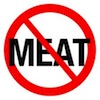Can Employers Tell Employees What to Eat?
 All companies want their employees to be team players. But just how far can companies go in requiring that employees 'toe the line'? Can that demand extend to cultural or religious or moral or dietary requirements?
All companies want their employees to be team players. But just how far can companies go in requiring that employees 'toe the line'? Can that demand extend to cultural or religious or moral or dietary requirements?
How As a starting point, consider this story, from CBC News: No meat on menu for Montreal purse maker
A Montreal accessories company has taken its policy of using no animal products beyond the rack and has forbidden its staff from eating meat and fish at work.
A former employee says the policy violated her rights as a non-vegetarian….
(I've blogged on unusual forms of employee discrimination before. See Discriminating Against the Non-Blind and "Smokers Need Not Apply".)
So, is it OK for a company to require that its employees not eat meat? Now, to be more precise, the company in question isn't forcing people to be vegetarians. It's just insisting that they not eat meat on the premises. But still, the requirement is an imposition. If an employee loves bologna sandwiches, why should she not be allowed to eat them on her lunch break at work? On the other hand, it's not exactly a brutal requirement: a place that forbids employees from eating meat is not exactly ipso facto a Dickensian sweatshop. Of course, you might say that the whole conflict could be avoided by careful hiring: only hire people who are willing to uphold the company ethos. But that still amounts to a form of discrimination — and we would still have to ask whether such discrimination is justified or not. Besides, we would still have to worry about cases in which an employee is a devout vegetarian at time of hiring, but then (for whatever reason) changes her dietary habits at some point after being hired.
Whatever your instincts about this particular case, it's worth performing a consistency test on your own conclusion. Try this: if you're a vegetarian or vegan, and sympathetic to the company's no-meat policy, ask yourself whether you would reach the same conclusion if the tables were turned, and a meat-packing company required employees to eat meat and forbade vegetarianism. ("Why would a vegetarian work at a meat-packing plant?" Well, times are tough. Stranger things have happened!) If, on the other hand, you think the company in the story above is engaging in unjustifiable discrimination, ask yourself whether you would reach the same conclusion if the company was one whose product embodied some value that you hold dear — something to do with your own religious or philosophical or political beliefs. That kind of consistency test is a good way to double-check that the conclusion you reach with regard to this particular case is rooted in good reasons, or whether instead your conclusion is based on an undefended bias.
—–
Thanks to NW for the story.